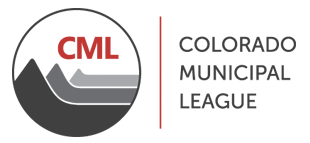University of Colorado Board of Regents to Appeal District Court Decision on CORA Violation
In This Section
By Samantha Byrne, CML law clerk
University of Colorado Board of Regents to Appeal District Court Decision on CORA Violation
by Samantha Byrne, CML law clerk
The University of Colorado Board of Regents voted April 10 to appeal the March 6 decision by the Denver District Court that the Board of Regents violated the Colorado Open Records Act (CORA) and Open Meetings Law (OML) when it disclosed a sole finalist for its 2019 presidential search after interviewing six candidates from a larger pool of applicants. CORA and OML require all public bodies in the state to announce the “finalists” when filling an “executive position.” The Board of Regents maintains that the six people interviewed were not finalists and therefore their names and application materials are not subject to disclosure under CORA.
The case was decided on a statutory interpretation and the plain and ordinary meaning of the statutes to find that “the legislature plainly expressed its intent that the names and records of more than one ‘finalist’ be disclosed.” While the Court agreed with the Board of Regents’ position that CORA and OML do not require public entities to always use a formal screening process, they held these statutes “do direct public bodies, including the Board of Regents, ‘as to how to’ disclose their business to the public.”
On May 28, the Colorado Court of Appeals granted a motion to stay the release of records in this case, allowing CU to withhold the name and application materials of a sixth candidate. The order also commands an expedited appeal with no oral arguments scheduled. Oral arguments may be requested but attorneys for both sides must confer before making such a request.
An analogous suit has been filed by Melanie Knapp, also represented by Eric Maxfield and Robert Gunning, the attorneys who represent the Boulder Daily Camera in the above mentioned case, against the Academy District 20 school board in El Paso County. Knapp’s claims echo the facts of the Board of Regents case: at least twenty-six people applied for the role of Academy District 20 superintendent; the school board then interviewed five of these candidates but named a sole finalist. In both cases, counsel turned to “the plain language of the statutes” to emphasize that more than one finalist exists where there are “multiple qualified candidates.” Knapp’s suit was filed in mid-April, around the same time the University of Colorado Board of Regents voted to appeal.
